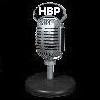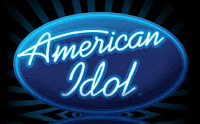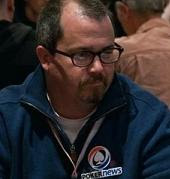
Today is the day regulations for the Unlawful Internet Gambling Enforcement Act of 2006, finalized on November 12, 2008 by the Treasury and Federal Reserve of the outgoing Bush administration, are set to go into effect. In other words, from this day forward the UIGEA, approved by Congress by surreptitious means on 9/30/06 and signed into law by President Bush on 10/13/06, most certainly now has a legal significance it did not have before.
Stated yet another way, today marks the beginning of an era when it is theoretically possible for some “designated payment system” somewhere to be found in violation of the UIGEA. Or for some “designated payment system” to act in a way so as to avoid being in violation of the UIGEA, say, by stopping you from depositing money onto a site where “unlawful internet gambling” is thought to be taking place.
I say “theoretically possible” because it still seems relatively unlikely any institution will ever be found in violation of the UIGEA. It is perhaps slightly more likely the latter will somewhere occur, that is, an institution will prevent a player from depositing online.
That’s where we are. Still foggy, I know.
Adding to the uncertainty, tomorrow a new president gets sworn into office, bringing with him a new cabinet and a new political agenda. A mechanism exists by which to overturn the UIGEA entirely (the Congressional Review Act of 1996), although it seems only faintly likely that avenue will be pursued. Another possibility has already arisen in the new Congress, the so-called “Midnight Rule Act” proposed by House member Jerrold Nadler (D-NY), that could be used to overturn last-minute rules like the UIGEA. Also perhaps a dim possibility. And, of course, new legislation could be proposed -- in fact, probably
will be proposed -- by our new 111th Congress designed to overturn or replace the UIGEA.
In any event, the UIGEA is now in effect. Let’s take a look at what exactly this law with its final, published regulations says, and consider a bit how it might (or might not) affect our fun little world of online poker.
First Draft: The Act They Passed
When first passed, the UIGEA ambiguously laid out terms by which “designated payment systems” and other “financial transaction providers” were to stop clients from moving money to and from online sites that were either involved with or helped facilitate “unlawful internet gambling.”
The law didn’t provide much guidance for determining what exactly “unlawful internet gambling” really was, other than to suggest any “game subject to chance” is gambling and therefore subject to all other legal restrictions upon it, such as are suggested by the 1961 Wire Act (on a federal level) and/or the various laws states have on the books regarding gambling.
Nor did the UIGEA provide any specific instructions to the banks, credit card companies, and other third-party vendors
how to block these transactions, although it did promise to provide such guidance by stating the Feds would be presenting more-detailed regulations within 270 days of the day Bush signed the UIGEA into law. As we know, it would take over two years for that process to be completed.
In October 2007, the regulations were first released and comments were solicited for the next couple of months. The Treasury Department and Federal Reserve did some work studying the law, the regulations it had proposed, and the comments, then a couple of their representatives appeared before a House Committee in early April 2008 to say they had been given an impossible task. As Louise Roseman of the Board of Governors of the Federal Reserve System put it, “The challenge we have is interpreting something -- particularly [with regard to existing] federal laws [about gambling] -- that Congress itself isn’t sure what they mean.... That is something that we are really struggling with at the moment.”
Opponents to the UIGEA proposed bills to repeal the sucker, but none got out of the House, and after several months of nothing new from the Feds, we began hearing rumors right around the time of the 2008 election that the Bush administration would be publishing the finalized regulations for the UIGEA along with a lot of other “midnight” rules during its final weeks in power. Then, on November 12th,
the “Final Rule” was published, with one of its provisions being it would go into effect today (1/19/09), although “compliance... by designated payment systems is not required until December 1, 2009.”
Final Draft: The Regulations They Published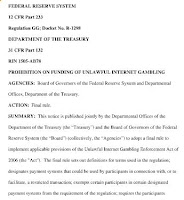
As far as defining what is and what is not “unlawful internet gambling,” the finalized regulations add nothing to what the UIGEA said on the matter, and in fact appear to strip the UIGEA of its authority to define such activity altogether, pointing out explicitly that “The Act does not spell out which activities are legal and which are illegal, but rather relies on the underlying substantive Federal and State laws.”
The published regs do get into a bit of analysis of the UIGEA’s fuzzy references to a “bet or wager” and a “game subject to chance,” but ultimately do not add any real clarification that would suggest, say, poker cannot also be considered gambling.
In its attempt at sorting out the UIGEA’s language, the regulations state that “even if chance is not the predominant factor in the outcome of a game, but was still a significant factor, the game could still be deemed to be a ‘game subject to chance.’” I know some who have read and commented on the finalized regulations want to read that line as opening the door to suggest certain games that involve chance but for which chance is
not a “predominant factor” would somehow not be covered by the UIGEA. But the finalized regs frankly seem to say the opposite, and even so, they explicitly deny the Act or the regulations are here to offer
any definitions regarding what is and what is not “unlawful internet gambling.”
As far as helping spell out to the affected institutions just what to do in terms of blocking “unlawful” transactions, the published regulations state that the Feds “recognize the challenge that participants in designated payment systems will face in trying to prevent restricted transactions without unduly burdening their processing of lawful transactions.” There will be no list of sites or companies with whom transactions are not permitted, so really it has been left up to the institutions themselves to determine what transactions are legal and what are not.
As a general directive, then, the regulations vaguely suggest that “due diligence” be the guiding principle for such institutions. Each payment system is given the freedom to exercise in its own fashion how best to handle transactions that may be deemed “unlawful” according to whatever legal jurisdiction under which that institution falls. In order “to minimize the burden of the rule on non-exempt participants [i.e., the affected institutions],” so say the regulations, “the final rule has been designed for maximum flexibility... [and] does not prescribe any design standards (such as requiring the use of a specific technology) or performance standards for such policies and procedures.”
Remember, these “non-exempt participants” or payment systems were the primary targets of the UIGEA -- the banks, credit card companies, third-party vendors whom the law says must block “unlawful” transactions or be forced to pay those “criminal penalties” (five years in prison, fines) listed in the original Act. Govern yrselves, say the published regs. And use “diligence,” why dontcha?
Another important clarification made by the final, published regulations suggests that when it comes to blocking transactions, these “non-exempt participants” (the banks, et al.) are
not obligated to consider the transfer of funds from a site to a player (i.e., cash outs), but only the transfer of funds
to an online site where it has been determined “unlawful internet gambling” occurs. “Under the final rule,” it states, “the term ‘restricted transaction’ would not include funds going to a gambler, and would only include funds going to an Internet gambling business.”
A New Era Begins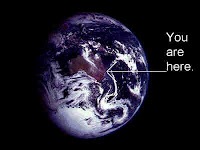
Sounds a lot like we’re now in a situation where the banks can block transactions if they wish, but they very likely won’t bother, and there isn’t really much incentive for them to do anything special to discover whether or not that money you’re transferring is going to an online gambling site or not.
That doesn’t mean your bank
won’t block such a transaction -- they could. But they probably won’t.
Seems even less likely our banks will be objecting when we try to cash the checks we’ve received when pulling funds out of the sites on which we play. The finalized regs specifically exclude those transactions from the purview of the UIGEA altogether. Could still happen, though. I think we’re basically looking at status quo for a good while here, although we may well start hearing stories of folks running into hassles moving moneys back and forth (mostly forth) to the sites.
I liked listening to Joe Brennan of the Interactive Media Entertainment & Gaming Association (iMEGA) on the most recent
Pocket Fives podcast (the 1/15/09 episode). Brennan and iMEGA has been heavily involved in the legal fight to declare the UIGEA unconstitutional, a battle that will continue as we move forward. I have my doubts about the potential success of iMEGA’s suit, but I was nevertheless impressed by Brennan on the podcast, where he offered what sounded to me like very sane, level-headed commentary on the legal situation as it currently stands.
On the podcast, Brennan was asked “How are the UIGEA regulations going to affect online poker players in 2009?” His sober reply: “Well, it may be harder to move money in and out of their players’ accounts at their favorite sites, is the long and the short of it. It may take more than one option for being able to fund their... accounts, and it may take longer for the operators to get their winnings to them when they cash out.”
Brennan expressed hope that the players would not subsequently “blame the operators” for such inconveniencies, and recommended patience on our part. Toward the end of the interview, he also strongly advised that we keep playing.
“Keep playing, and keep being advocates of your game,” said Brennan. “The more Americans that play the game, the more... revenue that the industry potentially generates, the more growth the industry sees, [and therefore] the more leverage the industry is going to have with the U.S. government. Because at the end of the day... the government has an interest in not making criminals out of millions of its citizens for something that is a simple pastime.”
Brennan might be just a little unclear there -- as we all know, the UIGEA does not criminalize playing online poker whatsoever -- but his point is still a good one. As more and more Americans choose play online poker, a poorly-designed, hard-to-enforce law designed to curb that activity like the UIGEA becomes less and less influential, and the likelihood of its being overturned or replaced with some sort of legalized, regulated form of online poker all the more likely.
Whether
that is what we want is another issue, of course. Even so, in this new era (legally speaking), I, for one, certainly intend to keep playing.
Labels: *the rumble, law, UIGEA
 First, Scott Huff (of CardPlayer’s The Circuit, PokerWire Radio, Big Poker Sundays) has started up a new poker podcast over on PokerRoad called The Poker Beat (replacing BPS). The focus of the weekly show will be to discuss current poker headlines, with Huff mostly having journalists, bloggers, and other insider-types on as guests.
First, Scott Huff (of CardPlayer’s The Circuit, PokerWire Radio, Big Poker Sundays) has started up a new poker podcast over on PokerRoad called The Poker Beat (replacing BPS). The focus of the weekly show will be to discuss current poker headlines, with Huff mostly having journalists, bloggers, and other insider-types on as guests.  Also, if you hadn’t heard, ESPN plans to televise the 2008 World Series of Poker Europe Main Event for us Americans starting on Sunday. We Yanks never got to see the 2007 WSOPE (won by Annette Obrestad), so this’ll be our first glimpse of how they do it over in the U.K.
Also, if you hadn’t heard, ESPN plans to televise the 2008 World Series of Poker Europe Main Event for us Americans starting on Sunday. We Yanks never got to see the 2007 WSOPE (won by Annette Obrestad), so this’ll be our first glimpse of how they do it over in the U.K.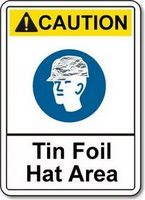 After the session, I was fooling around looking at site statistics for the blog and noticed someone had come to Hard-Boiled Poker after having done a search of the key words “titan poker micro limits rigged.” Took the seeker to a post of mine from a couple of years ago called “Online Poker Is Rigged, ver. 2.0” in which I told the story of a dude at a LHE table on Bodog who kept yammering on in the chat box as he lost hand after hand, cursing someone named “Bo.”
After the session, I was fooling around looking at site statistics for the blog and noticed someone had come to Hard-Boiled Poker after having done a search of the key words “titan poker micro limits rigged.” Took the seeker to a post of mine from a couple of years ago called “Online Poker Is Rigged, ver. 2.0” in which I told the story of a dude at a LHE table on Bodog who kept yammering on in the chat box as he lost hand after hand, cursing someone named “Bo.” 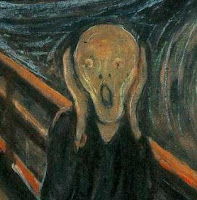




 . The blinds checked and I went ahead and bet out. All three of my opponents called.
. The blinds checked and I went ahead and bet out. All three of my opponents called. . The blinds checked again, I bet a dollar (into the six-dollar pot) and the cutoff raised. The blinds folded and I took a moment to decide whether I’d run into the straight. I decided it unlikely he had K-J or J-8, a judgment I somewhat rashly based on the 30 or so hands I’d played with him. So I three-bet. He paused (something I took as a good sign) and just called. I figured him for two pair here, say Q-T or Q-9.
. The blinds checked again, I bet a dollar (into the six-dollar pot) and the cutoff raised. The blinds folded and I took a moment to decide whether I’d run into the straight. I decided it unlikely he had K-J or J-8, a judgment I somewhat rashly based on the 30 or so hands I’d played with him. So I three-bet. He paused (something I took as a good sign) and just called. I figured him for two pair here, say Q-T or Q-9. on the river changed nothing (according to my read), so I bet out. The cutoff called, showing
on the river changed nothing (according to my read), so I bet out. The cutoff called, showing 
 , and I picked up a nice $13.50 pot with my set of ducks.
, and I picked up a nice $13.50 pot with my set of ducks.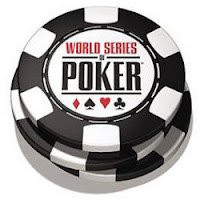








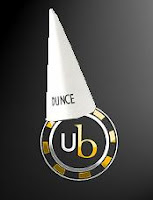
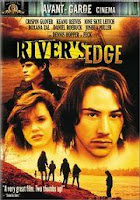
 on the turn might’ve bothered me more against some opponents, I was fairly sure TheDwarf was sitting over there with K-6 or something like it, and that check-raising was the way to go.
on the turn might’ve bothered me more against some opponents, I was fairly sure TheDwarf was sitting over there with K-6 or something like it, and that check-raising was the way to go. 








